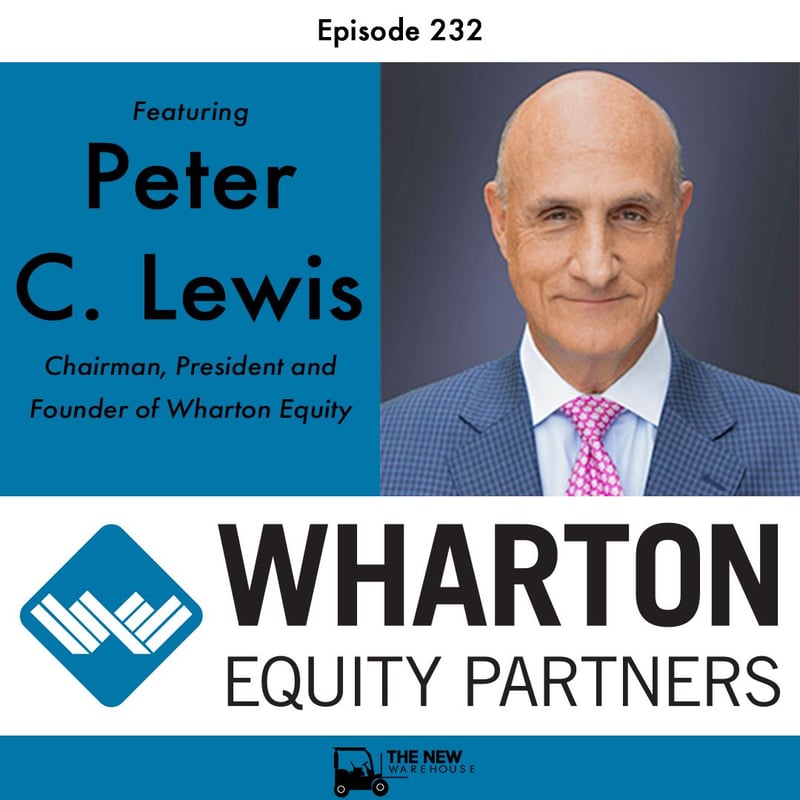
EP 232: Peter C. Lewis and What’s Next

Kevin Lawton
On this episode, I was joined by Peter C. Lewis of Wharton Equity Partners. Peter is the Chairman and President at Wharton Equity Partners and currently started the firm in 1987 where they now focus on investing in industrial real estate as well as other companies that impact that space. We discuss how Peter pivoted from fully in on residential investments to fully in on industrial investments, their recent investment in micro-fulfillment company Fabric, and also his thoughts on where the industry is going.
Key Takeaways
- One of the craziest and most impactful parts of my conversation with Peter was how he pivoted into the industrial space. He started his firm in 1987 and was focused on residential real estate investments but then he started to notice the pace at which e-commerce was growing. In fact, he said the pivotal moment was when he saw his 90-year-old father was starting to order things online. Typically people would get dip their toe in at first but Peter C. Lewis dove right in and unloaded all of his residential investments ($500 million worth) to move everything into industrial real estate. He has built up several large warehouses over the years and has now also begun investing in technology companies that support warehousing and logistics initiatives.
- Their most recent investment was in Fabric which is a micro-fulfillment company that focuses on taking small spaces and using technology to help them become fulfillment powerhouses. Peter had been watching them for some time as he believes that micro-fulfillment is the future as consumers are wanting their products faster which means the product needs to be closer to them in order to meet quick delivery times. He was also blown away when he saw one of their operations underneath a mall in Israel on a trip in the area. With micro-fulfillment on the rise, we will be sure to see more of Fabric and other companies like them growing rapidly.
- Throughout the pandemic, I have been curious to see if the vacant retail locations would become more fulfillment spaces than true brick and mortar locations. Peter is the perfect one to ask since he deals in the real estate side of things. He believes that brick and mortar will never completely go away but what we will continue to see is the amount of inventory they hold continue to decrease. The idea is that these will become more of a showroom type of location so that consumers can still feel the product and understand it in person if they need to but it will be fulfilled to them from a different location whether it is a regional warehouse or micro-fulfillment location. Very interesting forward-looking insights from Peter in this episode.
Listen to the episode below and leave a comment with your thoughts.









